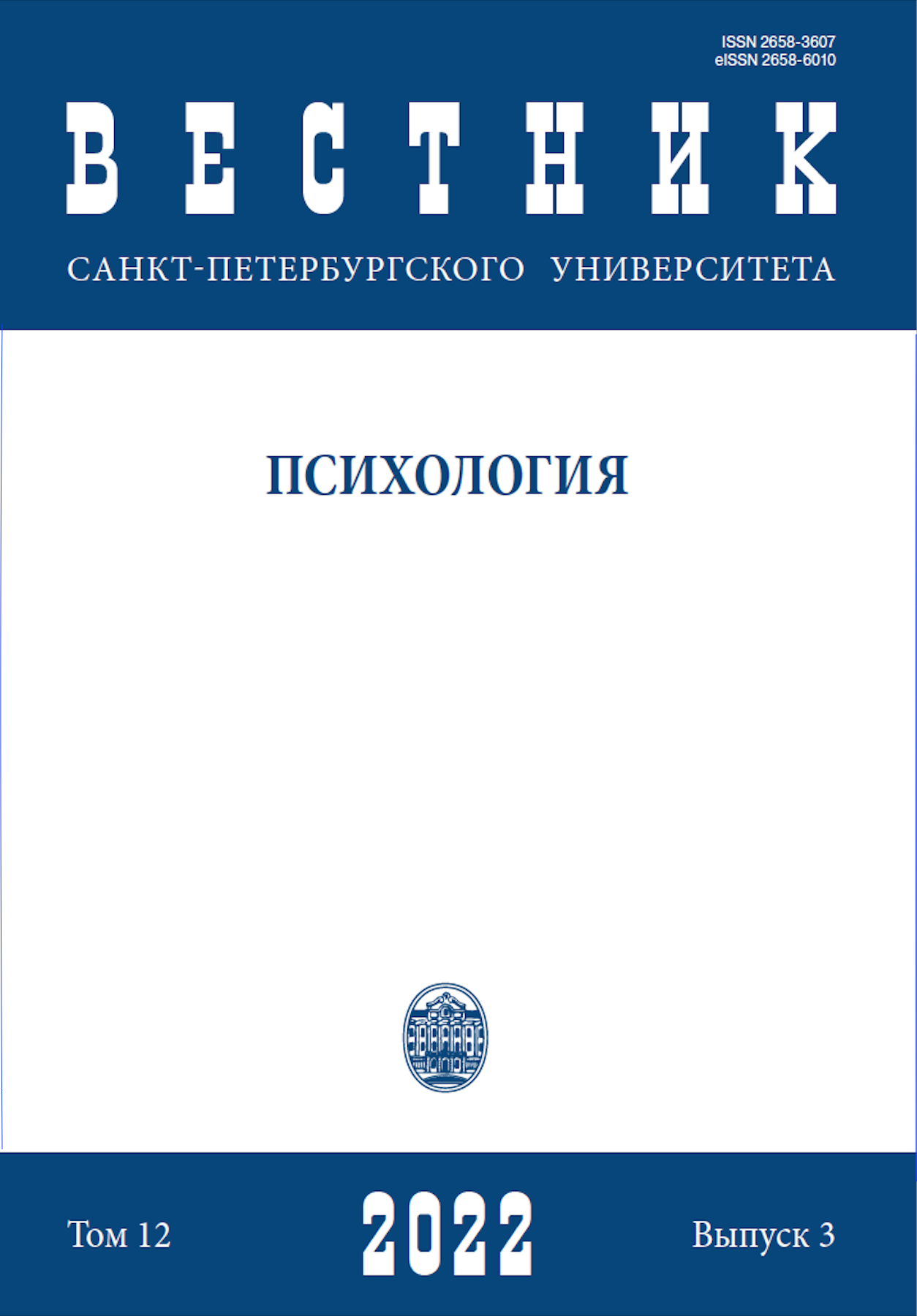Эмпатия и отношение к неопределенности и риску у российских врачей
DOI:
https://doi.org/10.21638/spbu16.2022.306Аннотация
В рамках проблемы медицинской неопределенности актуальным является изучение психологических профилей врачей разных специальностей, а также роли эмпатии в их деятельности. Нами проверялась гипотеза о специфике связей эмпатии с отношением к неопределенности и риску в личностном профиле врачей разных специальностей и, в частности, в группе врачей-психиатров. Проводилась апробация Джефферсоновского опросника эмпатии (JSE). Применялись: Шкала медицинских рисков (ШМР), включившая десять ситуаций с разными вариантами принятия решений и редукции риска; Шкала интолерантности к неопределенности С.Баднера, опросники Личностные факторы принятия решений (ЛФР-21), Темная дюжина (ТД). В исследовании приняли участие 265 человек: 112 врачей (возраст: M=36,8; SD=8,6), а также 153 студента, которые также были включены в апробацию JSE.Выборки врачей: 1) 46 психиатров г. Москвы (возраст: M=38,4, SD=8,4), из них 39 женщин; 2) 66 врачей других специальностей (возраст: M=41,01, SD=12,8), из них 37 женщин. Выраженность личностных переменных в выборках врачей-психиатров и врачей других специальностей не различается, как и их восприятие риска при принятии решений. Джефферсоновский опросник эмпатии на русскоязычной выборке проявил аналогичную англоязычной версии трехфакторную структуру (шкалы: взятие ответственности, сострадательная забота, ощущение нахождения в роли пациента). Шкалы эмпатии связаны с позитивным отношением врачей к неопределенности и риску, с их оценками риска при медицинских решениях и включены в дифференциацию латентных профилей (в выборке врачей-психиатров). Шкалы эмпатии включены в разные типы латентных личностных профилей, дифференцирующие группы врачей-психиатров. Выделенные группы (классы) максимально различаются сопутствием выраженности толерантности к неопределенности и эмпатии по шкале взятия ответственности (одновременно повышенных в одном классе и сниженных в другом).
Ключевые слова:
эмпатия, готовность к риску, рациональность, толерантность к неопределенности, Джефферсоновский опросник эмпатии, Шкала медицинских рисков
Скачивания
Библиографические ссылки
References
Загрузки
Опубликован
Как цитировать
Выпуск
Раздел
Лицензия
Статьи журнала «Вестник Санкт-Петербургского университета. Психология» находятся в открытом доступе и распространяются в соответствии с условиями Лицензионного Договора с Санкт-Петербургским государственным университетом, который бесплатно предоставляет авторам неограниченное распространение и самостоятельное архивирование.




